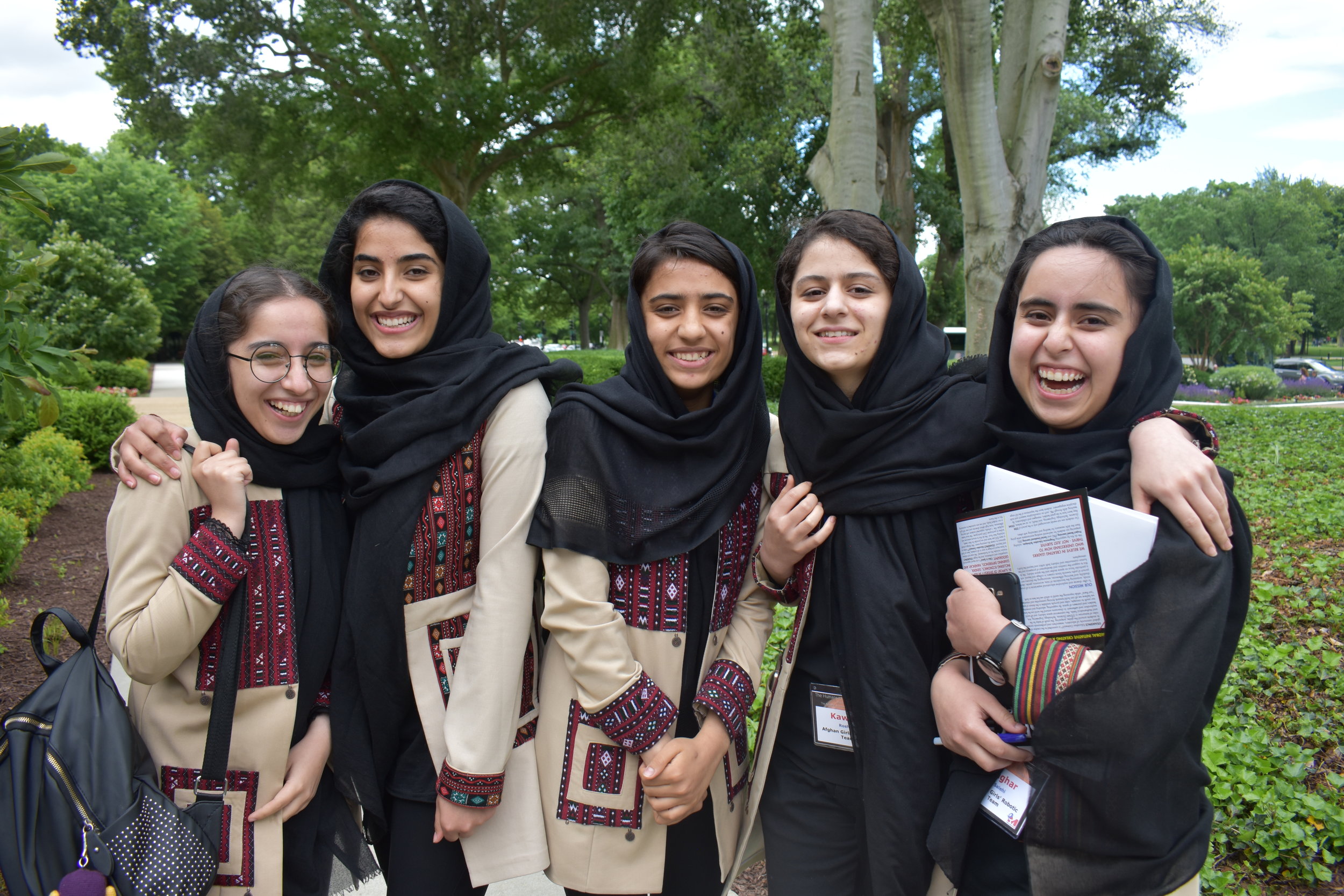Two years since emerging on the international stage, Afghanistan’s first all-girls robotics team continues to spread hope in their country
(Courtesy of Bhumika Regmi / Malala Fund)
“We didn’t want the story of robotics to finish with our team. We wanted other girls to be here, to work in this field,” says 16-year-old Fatemah, Afghan Dreamers’ captain.
A lot has changed for the first all-girls robotics team from Afghanistan since they were denied visas into the U.S. for a robotics tournament — a widely-publicised story that captured the world’s attention.
The team members, who call themselves the Afghan Dreamers, have travelled to Mexico, Estonia and Germany, won awards at Robotex International and FIRST Robotics World Championships, and rubbed shoulders with Canadian Prime Minister Justin Trudeau, U.S. House Speaker Nancy Pelosi and Prince Constantijn of the Netherlands.
But these young women don’t rest on their laurels — they're already focused on their next challenge: giving other girls in Afghanistan the opportunity to study STEM.
“We didn’t want the story of robotics to finish with our team. We wanted other girls to be here, to work in this field,” explains 16-year-old Fatemah, the team’s captain. The Afghan Dreamers formed through a nationwide search run by Digital Citizen Fund (DCF), a nonprofit that helps girls and women around the world access technology and learn the skills they need to work in today’s labour market. The lucky winners of DCF’s contest — Fatemah, 17-year-olds Kawsar, Lida and Saghar, and 16-year-old Somaya — went on to compete at the FIRST Robotics World Championships.
With DCF, the Afghan Dreamers hold weekly workshops in Kabul and Herat to teach girls the basics of robotics. Almost 600 girls attend their trainings each year. The team wants to go beyond the workshops to create even more of an impact in Afghanistan, where 3.5 million children are out of school, 85% of which are girls. “Tech is the future and girls in tech means a better economy,” says Saghar. That’s why the Afghan Dreamers now advocate for STEAM-based formal education in Afghanistan. They want students to be able to compete in a workforce that is becoming increasingly more reliant on technology.
During a meeting with Afghan President Ashraf Ghani in 2019, the team discussed building a technology school in Kabul. As a result of their advocacy, the government has earmarked a six-acre space for the construction of the first-ever STEAM high school in Afghanistan. The government is naming the school The Afghan Dreamers, in recognition of the team and their accomplishments, and plans to open it in 2022. While the school will be co-ed, the team says they hope it will produce female scientists that all Afghan students can emulate.
The girls know the value of female role models: “Before we went back [to Afghanistan from the U.S.], less girls wanted to be in robotics. Now their ideas are changing — they want to become like us,” Fatemah says. Thanks to the team’s popularity in Afghanistan, DCF says it received almost five times the number of applications for their robotics programme the following year.
And while the Afghan Dreamers have received nationwide praise, they’ve also faced criticism. “Some people have positive feelings towards us because we came back with a medal and it was really an honour for our country. But because our country is traditional and some people are not open-minded enough, they have some negative comments,” says Somaya, the youngest member of the team. Kawsar believes that some of the negativity stems from a misunderstanding of what the girls do when they travel abroad. Many dislike that the teenagers are not supervised by their families.
The girls try to tune out the noise and stay focused on their goals. Their main concern with travelling is missing their classes because catching up can be difficult. Plus, some of their school friends aren’t always friendly. “Some are jealous,” Somaya says, causing the other girls to erupt into laughter.
Despite the challenges of frequent travel, the Afghan Dreamers plan on making the most of every opportunity they’re given. In May 2019, the Musk Foundation, Tesla CEO Elon Musk’s philanthropic organisation, sponsored the team’s attendance at the Humans to Mars Summit in Washington D.C., where they spoke on a panel and Fatemah gave a speech to other scientists. Although the girls are experienced speakers, they said they were nervous that day because NASA scientists and researchers, whose work they had studied, were in the crowd.
Now home in Afghanistan, the team is back at work building and teaching robotics. Since participating in their first competition, the Afghan Dreamers have become a symbol of hope in a country that has long excluded girls and women from science and technology. “Every person has a dream they want to pursue. We do too,” Fatemah says. After having had the opportunity to pursue their dreams, the team now wants to give every girl in Afghanistan the chance to do the same.
 Read more
Read more















